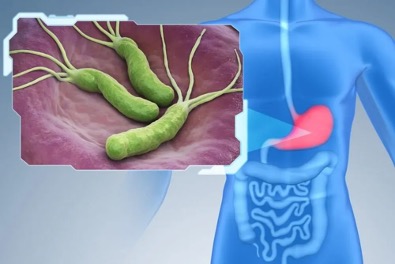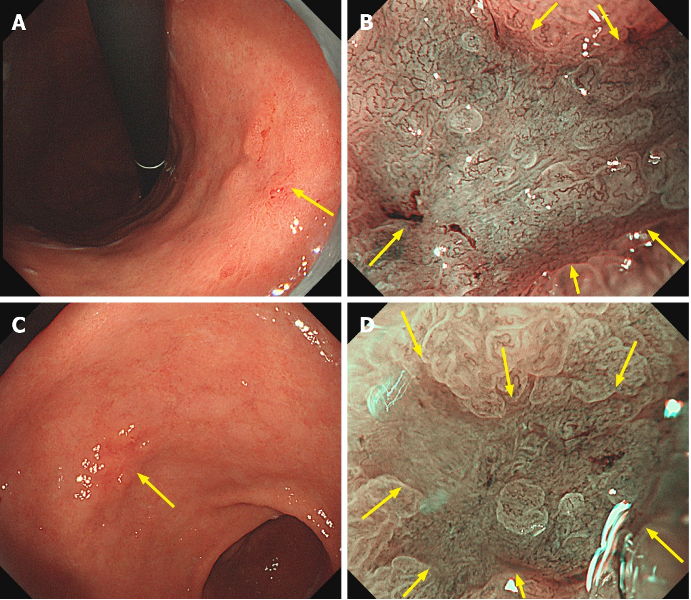The Helicobacter pylori infection and Stomach Cancer Connection

How common are these two conditions?
- Helicobacter pylori is a common chronic bacterial infection that is present in up to 31% of Singaporeans .
- Vietnam is a high H. pylori burden country with the highest age-standardized incidence rate of gastric cancer (16.3 cases/100,000 for both sexes) in Southeast Asia 1.
- In Cambodia, the incidence rate of gastric cancer is 7.7 cases per 100,000 people 2.
- In China, the incidence rate of gastric cancer is 22.6 cases per 100,000 people 3.
What is Helicobacter pylori Infection
- Helicobacter pylori is a bacterial infection that infects your stomach
- It is transmitted by saliva, and close household contact
- pylori infection may be present in more than half the people in the world, but most people don’t realize they have it because they never get sick from it
- pylori can damage the protective lining of the stomach and small intestine, which can allow stomach acid to cause stomach ulcer and bleeding
- About 10% of people with H. pylori will develop an ulcer
- Sometimes people can develop inflammation of the stomach (gastritis) or duodenum (duodenitis)
- Common complaints include pain or discomfort (usually in the upper abdomen), bloating, feeling full after eating a small amount of food, lack of appetite, nausea, vomiting, and dark or tar-colored stools.

How is Helicobacter pylori Infection Diagnosed?
- Patients with dyspepsia (painful, difficult, or disturbed digestion) should be considered for testing for helicobacter pylori infection .
- Helicobacter pylori can be detected either through gastroscopy or through a carbon urea breath test .
- Gastroscopy with narrow band imaging (NBI) is a technique that can improve the detection of early gastric cancer 1.
Treatment
- Upon detection, helicobacter pylori infection is treated with a course of antibiotics and confirmation of eradication is mandatory for all patients after treatment .
- Usual treatment regimen contains a course of one stomach acid suppressant and two different antibiotics for 10-14 days
- Antibiotics resistance profile is important and determines the success rate of the treatment
- Currently latest treatment regiment offers cure rate about 95-97%
Risk Factors of Progression to Stomach Cancer
- Helicobacter pylori is considered to be an important cause of stomach cancer .
- Asian populations are at a particularly high risk for gastric cancer. We know that Koreans, Vietnamese, Japanese, and Chinese people have a substantially higher risk of gastric cancer 4.
- The majority of cases of peptic ulcer disease are caused by a bacteria called helicobacter pylori (HP) infecting the mucosal lining, causing inflammation which weakens the lining and leads to ulceration 5.
Signs of Stomach Cancer
Generally, a gastroscopy takes about 10-15 minutes. If there are polyps to be removed or abnormalities detected, it may take longer. Any polyps seen will be removed immediately and sent to the laboratories. However, a therapeutic gastroscopy may take longer as it may involve injection of medications, application of endoscopic clips, electrocautery to stop bleeding.
What if I am diagnosed with stomach cancer?
- Early stomach cancer can occur WITHOUT any symptoms
- An ache or burning pain in your stomach (abdomen)
- Stomach pain that may be worse when your stomach is empty
- Nausea
- Loss of appetite
- Frequent burping
- Bloating
- Unintentional weight loss
Gastroscopy with Narrow Band Imaging (NBI)
- Gastroscopy with narrow band imaging (NBI) is a technique that can improve the detection of early gastric cancer.
- NBI is a type of endoscopy imaging that uses a special filter to enhance the contrast between the blood vessels and the surrounding tissue in the stomach.
- This makes it easier to identify abnormal blood vessels that may be indicative of early-stage cancer 1.

Gastroscopy images of magnifying narrow-band imaging (NBI) endoscopic findings of early gastric cancer. Using magnified view, stomach cancer can be detected early before symptoms occurs
Ref: World J Clin Cases. Jul 26, 2020; 8(14): 2902-2916
Risk Factors of Stomach Cancer
Several factors can increase the risk of developing stomach cancer, including:
- Age: Stomach cancer is more common in people over the age of 55 6.
- Gender: Men are twice as likely to develop stomach cancer as women 6.
- Family history: People with a family history of stomach cancer are at a higher risk of developing the disease themselves 3.
- Smoking: Smoking cigarettes increases the risk of developing stomach cancer 6.
- Diet: A diet high in smoked, pickled, or salted foods and low in fresh fruits and vegetables increases the risk of developing stomach cancer 5.
- Helicobacter pylori infection: People infected with H. pylori are at an increased risk of developing stomach cancer 3.
- Pernicious anemia: A condition in which the body is unable to absorb vitamin B12, which can lead to a higher risk of stomach cancer 5.
Patients with a family history of stomach cancer or who smoke should consider undergoing gastric cancer surveillance. Gastric cancer surveillance involves regular endoscopic examinations to detect early-stage cancer or precancerous lesions 6.
Learn more:


